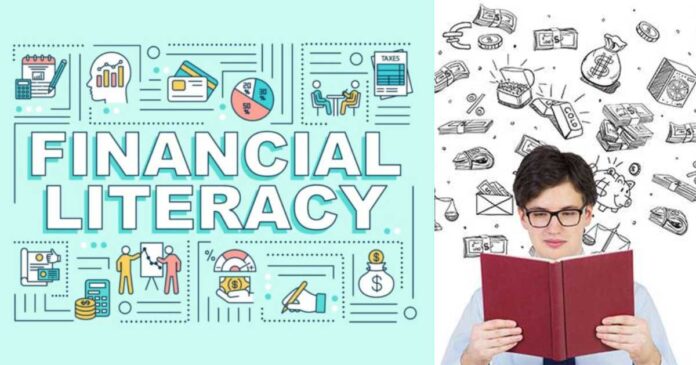When you are young, you have plenty of time and good health, but not much money. In middle age, you may have money and still enjoy good health, but you often find you have little time. By the time you are old, you may have both money and time, but your health might be deteriorating. Unfortunately, many people realise they have enough money only when they no longer have time or health to enjoy it. Therefore, it’s important to be tactical about building wealth, especially during your youth.
April is Financial Literacy Month, a time dedicated to raising awareness about the importance of managing money wisely. For students, this is a perfect opportunity to start building strong financial habits that can set the foundation for lifelong stability and success.
What is Financial Literacy?
Financial literacy is the ability to understand and effectively use various financial skills, including budgeting, saving, investing, and managing debt. It’s about knowing how money works and how to make informed decisions about your finances. For students, becoming financially literate means gaining the tools to avoid debt traps, make smart spending choices, and prepare for a financially secure future.
Smart Money Moves Every Student Should Know
Here are some financial truths and tips that every student must know about:
1. Create a Budget and Stick to It
Budgeting is the cornerstone of financial literacy. Start by tracking your income, whether from a part-time job, allowances, or financial aid, and compare it to your expenses.
Break expenses down into categories like necessities and extra luxury expenses etc. Use budgeting apps or simple spreadsheets to stay on top of where your money is going.
2. Save as Much as You Can
Even if you’re only able to save a small amount each month, it adds up over time. Set up a savings account and aim to save at least 10% of your income.
Read More: Meta Reveals Simplest Way to Earn Money from Facebook
This habit prepares you for unexpected expenses and future goals, such as studying abroad, buying a laptop, or moving into your first apartment.
3. Use Credit Wisely
Credit cards can be useful tools when used responsibly. Start building your credit history with a student credit card, but be sure to pay off your balance in full every month to avoid interest and debt. Understanding interest rates, due dates, and credit limits is essential to keeping your finances healthy.
4. Limit Student Loan Debt
Student loans are sometimes necessary, but it’s important to borrow only what you need. Look for scholarships, grants, and work-study opportunities first. If you do take out loans, understand the terms, including interest rates and repayment options after graduation.
5. Learn the Basics of Investing
While it may seem premature, learning the basics of investing while you’re still a student can give you a huge advantage. Understanding concepts like compound interest, stocks, and retirement accounts (like Roth IRAs) can motivate you to start investing early, even with small amounts.
6. Distinguish Wants from Needs
Financial discipline often comes down to making smarter spending choices. Ask yourself whether a purchase is a necessity or a want. Making these distinctions can help you avoid impulse spending and prioritise your financial well-being.
7. Educate Yourself Continuously
Financial literacy is an ongoing journey. Take advantage of free resources—workshops, podcasts, YouTube channels, and articles to deepen your understanding. The more informed you are, the better decisions you’ll make.
By adopting smart money habits early, like budgeting, saving and responsible borrowing; you set yourself up for a more secure and confident future. Remember, the small steps you take now can lead to big financial wins later.
Stay tuned to Brandsynario for latest news and updates.









































